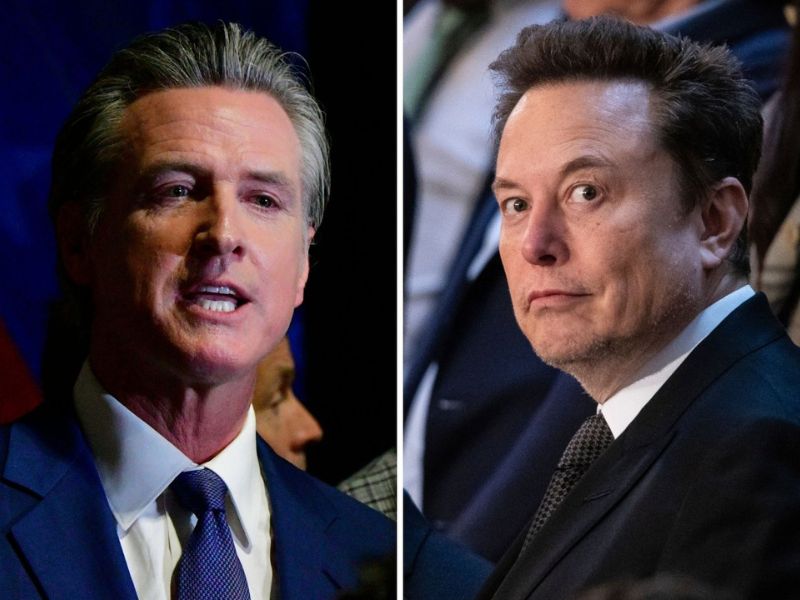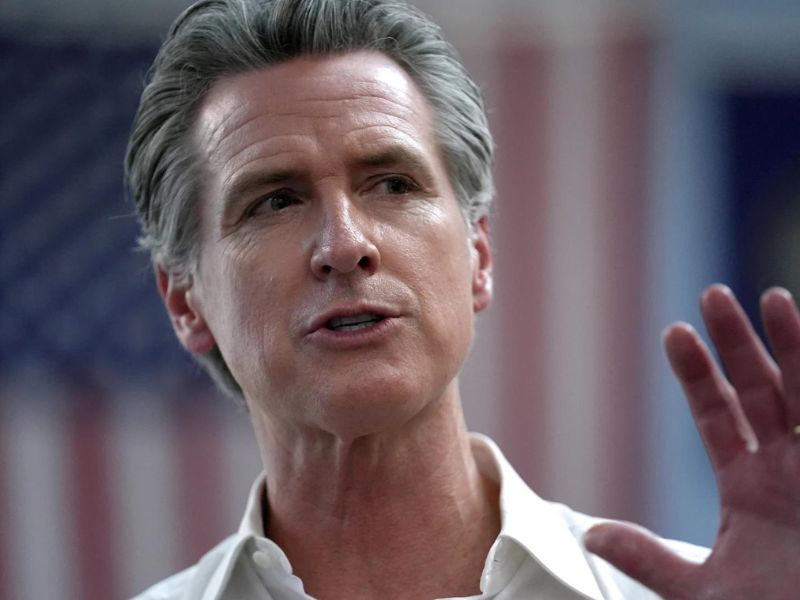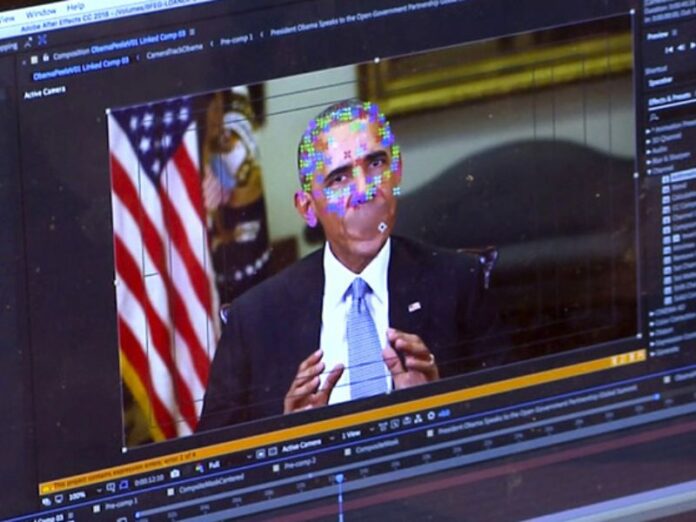Gavin Newsom Signs Election ‘Deepfake’ Ban in Rebuke to Elon Musk
California Senator Gavin Newsom has taken a strong position against the abuse of fake insights (AI) in political campaigns by marking the country’s hardest law forbidding carefully changed political “deepfakes.” The enactment comes as concerns around AI’s effect on decisions develop, especially in light of a later occurrence including tech tycoon Elon Musk. The unused law, which can impact sometime recently after the November decision, reflects California’s proactive approach to controlling AI within the political circle.
The Rise of Deepfakes and Misinformation

Deepfakes are recordings or sound recordings that have been carefully changed to delineate somebody saying or doing something they never did. These AI-generated recordings can be fantastically practical, making it challenging for watchers to distinguish between genuine and fake substances. With the rise of social media stages, deepfakes can spread rapidly, fueling deception and perplexity, particularly amid decision campaigns.
Governor Newsom’s choice to act on this issue takes after an occurrence in which Musk, the proprietor of X (once known as Twitter), shared a doctored video of Bad Habit President Kamala Harris in July 2024. The AI-altered video started shock, and Newsom freely promised to address the issue. “I might care less on the off chance that it was Harris or Trump,” Newsom said. “It was fair off-base on each level.”
The threats of deepfakes amplify past person candidates. AI innovation has the potential to disturb decisions, befuddle voters, and disintegrate belief within the majority rule preparation. With the 2024 race cycle poised to be the primary AI-driven race, legislators have been scrambling to make shields against the destructive impacts of this innovation.
California’s New Deepfake Law
The law marked by Newsom gives courts the control to piece the conveyance of intentioned beguiling deepfake substance amid decision seasons. This implies that anybody caught sharing deepfakes outlined to deceive voters might confront gracious punishments. The law moreover secures decision authorities from being focused on AI-generated substance, a pivotal degree given the expanded dangers against survey laborers taking after later races.
What sets this law separated is its timing. It was particularly planned to go into impact sometime recently the up-and-coming race, guaranteeing that any deepfakes or AI-altered political substance can be quickly tended to. Assemblymember Gail Pellerin, a Santa Cruz Democrat and previous province races official who carried the charge, has over and over cautioned that AI seems to wreak destruction on the 2024 race cycle.
In expansion to the deepfake boycott, Newsom marked a companion charge that requires stages to expel hailed deepfake substance. This charge will take impact the following year and is aimed at holding social media stages responsible for the substance they have. A third law requires disclaimers on political advertisements that utilize AI, including an additional layer of straightforwardness.
AI, Free Speech, and the First Amendment

The debate over AI-generated content in legislative issues isn’t without discussion. Whereas numerous see deepfakes as a danger to decision judgment, others contend that constraining AI substance may encroach on To begin with Revision rights. Tech companies have raised concerns that these confinements might weaken free discourse securities, particularly when it comes to political spoofs or parodies.
Elon Musk himself has weighed in on the matter, noticing in an X answer to Newsom that “parody is lawful in America.” Musk’s position reflects a broader wrangle about how much control ought to be forced on AI innovations. As AI proceeds to advance, the challenge for legislators will be striking an adjustment between protecting free discourse and guaranteeing that AI isn’t utilized to delude voters.
Newsom vs. Musk: A Tumultuous Relationship
The marking of the deepfake boycott includes another chapter on the complicated relationship between Representative Newsom and Elon Musk. Newsom, a previous San Francisco leader with solid ties to the tech industry, once lauded Musk for his part in propelling the electric car industry through Tesla. California played an essential part in Tesla’s development by giving liberal state subsidies.
However, as Musk’s political sees have moved to the right, pressures between the two have expanded. Musk has been vocal in his feedback on California’s widespread shutdown orders and its enactment on transgender understudy protection. A few of these debates have been raised in the courts. As of late, an offers court sided with X’s challenge to a 2022 law, marked by Newsom, that required social media companies to reveal more data approximately their substance control approaches.
Also Read:
- After No-Hit Drama, Tigers Set Sights on Corbin Burnes and Orioles Showdown
- 4.7 Magnitude Earthquake Shakes Malibu: Safety Tips and Latest Updates
Conclusion
With the signing of this unused enactment, California proceeds to lead the charge in directing rising AI innovations. Senator Newsom’s choice to boycott deepfake political substance may be a coordinated reaction to growing concerns around the perils of deception within the computerized age. Whereas this law speaks to a critical step forward in ensuring decision keenness, it too highlights the ongoing wrangle around the adjustment between free discourse and control within the AI period. As the 2024 decision approaches, the part of AI in legislative issues will without a doubt stay a petulant issue, with California once more at the bleeding edge of the talk.

